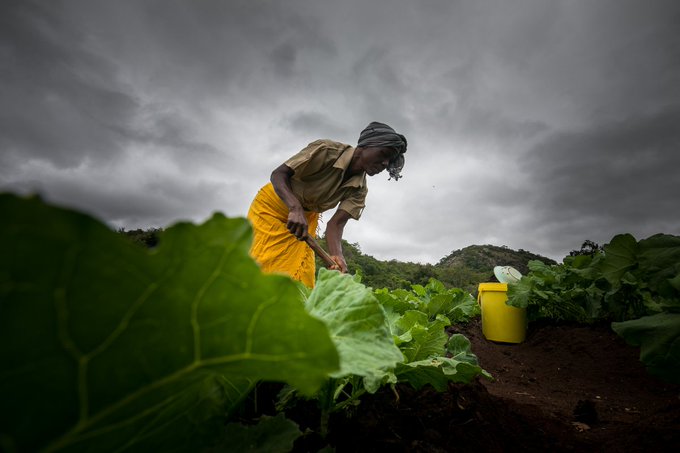By Joyce Mukucha
According to surveys and researches, it is estimated that 70 percent of the Zimbabwean population reside in rural areas and approximately, 80 percent of the rural population’s livelihoods are dependent on rain fed agriculture making them highly vulnerable to climate change induced weather extremes, variability and climate impacts.
Due to the fact that the 2018/2019 season did not see most parts of the country receiving adequate rainfall as expected, many villagers in Hurungwe, Mashonaland West Province are experiencing food shortages and they are now surviving on wild fruits.
The families in urban-distant remote communities such as Hwaseva village go for as long as 3 days without eating anything solid and rely on the wild fruits for survival, it has been learnt.
In an interview with Spiked Online Media, Tinei Mlambo one of the villagers who looks after a family of five said, “The rains did not come in expected quantities and we have already started starving due to crop failure experienced. The only means for one to survive in this community is to go and look for wild fruits to eat during the day. Sadza is only for supper. That is if you have maize.
“Besides depending on wild fruits, most men in this village are now travelling long distances to where is called “kumaPurazi” to work in the fields of farm owners so as to get maize in return to feed their families,” Mlambo said.
Most villagers are now barter trading their livestock in exchange of buckets of maize whilst others are surviving on baobab fruits (Mawuyu), the hard-shelled fruits from a drought resistant tree which grows in arid regions of Zimbabwe. On the other hand, some families survive on what is called matamba, hwakwa and other summer season fruits.
Another villager who refused to divulge his name for confidentiality reasons also miserably explained that they were experiencing hardships in as much as accessing adequate food was concerned to the extent that both adults and children in the family were now used to insufficiency.
“As a result of poor rains which have been received in the previous season, drought has become our everyday routine in the family and the village at large. As we try to escape hunger, we are now relying on wild fruits and edible plants so that we don’t starve,” he said.
Smallholder farmers in Hurungwe who farm all year round told Spiked Online Media that their lives were connected to the climate. A warming climate without sufficient rainfall have brought changes that are currently affecting water supply to their horticultural agriculture, wellbeing and even the natural environment.
“For us to earn a living in rural communities like these, we grow a variety of crops for business purposes. We have a project called Mushandirapamwe which is a cooperative where everyone has a portion to grow his vegetables and other plants. Our business is now being affected by the shortage of water as the dams and rivers that we depend on are now drying up.
“The challenge now is that since this season we received minimal rainfall, water for irrigation purposes is becoming scarce,” said Munesu Mashonge, one of the members at Mushandirapamwe Cooperative who is into smallholder farming.
Considering that there are above 150 families who have portions in Mushandirapamwe garden, Mashonge explained that water cannot be adequate for everyone hence their crops are wilting. In the end, the expected profit will be minimal due to short supply to the market.
A number of families which Spiked Online Media talked to said there was need for climate resilient agricultural strategies to be implemented in order to achieve food security programmes in the province, particularly the Hwaseva village so that the nutrition would be improved as well as ensuring that sustainable agriculture is promoted.
